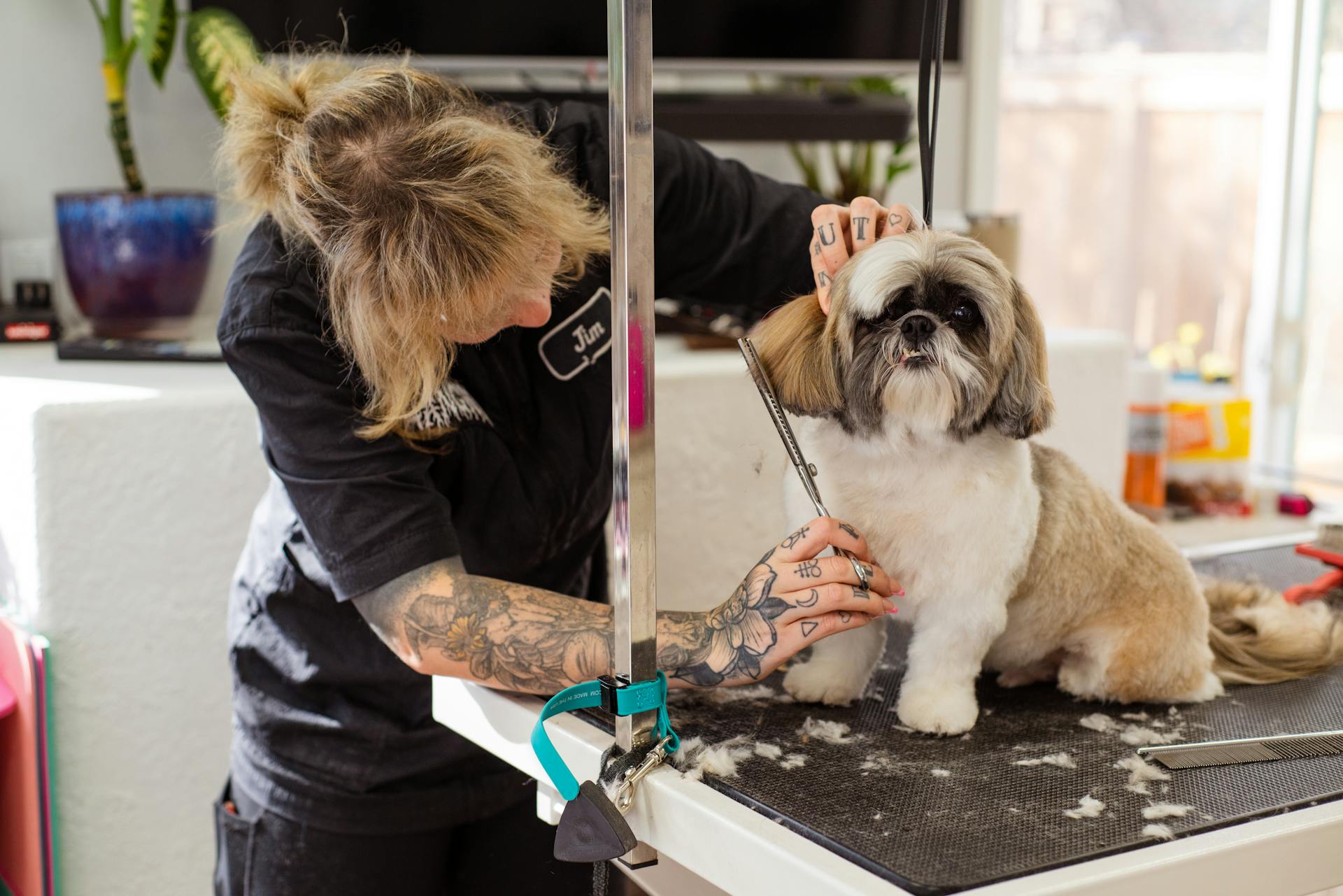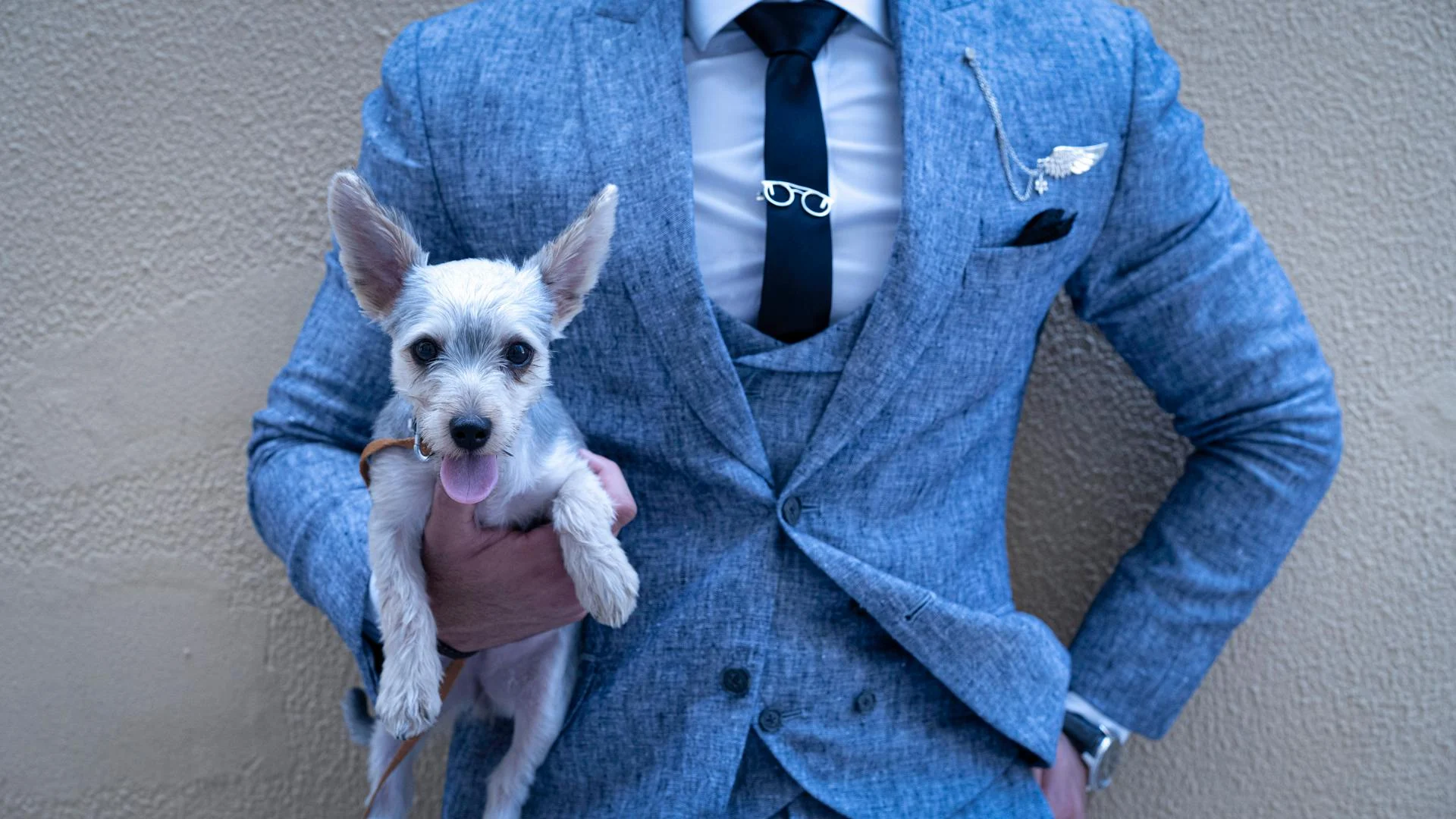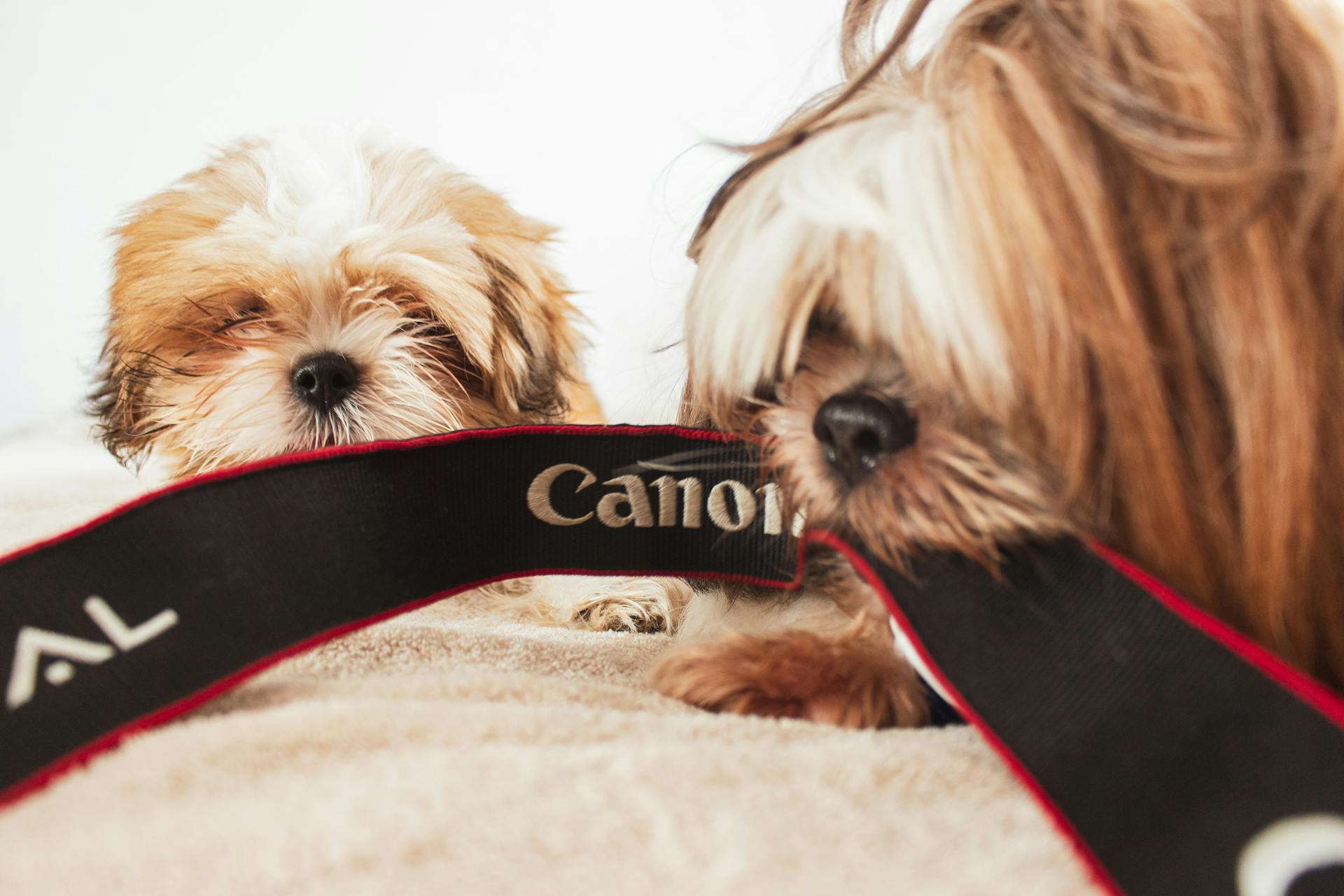
Huntaway puppies need socialization from an early age to become confident and calm dogs. This process starts with the breeder, who should handle the puppies frequently and introduce them to new people, sights, and sounds.
A healthy Huntaway puppy is born after a gestation period of around 62-64 days. The mother's nutrition and health during pregnancy play a crucial role in the puppy's development.
To ensure proper growth, Huntaway puppies need to be fed a nutrient-rich diet that meets their specific needs. A high-quality puppy food should be introduced at around 3-4 weeks of age, and gradually transitioned to adult food by 6-7 months.
Huntaway puppies require regular exercise to develop strong bones and muscles. Short play sessions of 10-15 minutes, 2-3 times a day, are ideal for puppies under 6 months old.
Suggestion: Puppys Food
Physical Characteristics
Huntaway puppies are a medium to large sized breed, typically measuring between 50 and 66cm in height.
Their weight can vary, but most Huntaways will weigh between 18 and 45kg.
A black and tan coat is the most common colour combination, but you may also see a brindle, black, or white coat.
For working purposes, a well-muscled, athletic body is essential, with a deep chest and long legs.
Most Huntaways have floppy ears, which is a characteristic you'll want to keep in mind when grooming your puppy.
Temperament
Huntaway puppies are incredibly intelligent, and this trait can be both a blessing and a curse. They are renowned for their problem-solving ability and will excel at sheepdog trials, but they can also be quick to bore and do not enjoy repetitive tasks.
They have a strong instinct to work in a pack rather than alone, and as they are shepherds by nature, they are very tolerant of strangers and will often welcome them good-naturedly. This makes them a great breed for families with children.
New Zealand Huntaways are usually good with children and fairly easy to obedience train, but they do require an owner who is calm, confident and consistent, making the rules clear and sticking to them. This will help prevent dominant behaviors from developing.
For your interest: Largest Livestock Guardian Dog Breeds
They are not guard dogs and some are not good watchdogs, but they are naturally friendly with strangers. They are also usually good with non-canine pets.
Their unique trait of using their voice to drive sheep can be a bit tricky to manage, but with training, they can learn when to bark and when not to bark. In fact, one owner reports that their Huntaway only barks when being worked, and has even been trained to keep quiet and save their voice for working.
A unique perspective: When Do Puppys Stop Growing
Training and Behavior
Huntaway puppies are incredibly trainable, picking up new commands and tricks remarkably quickly in the right hands. They thrive on consistency and dedication from their owners.
Their independent nature means they can be quite stubborn at times, but a firm and patient approach can help them stay on track. This breed requires a trainer who can keep their lessons interesting and varied to keep them engaged.
With the right training, huntaway puppies can grow into well-behaved and well-adjusted adult dogs. Consistency is key when training this breed, so it's essential to establish clear routines and boundaries from an early age.
Intriguing read: Respect Training for Puppies
Health and Wellness
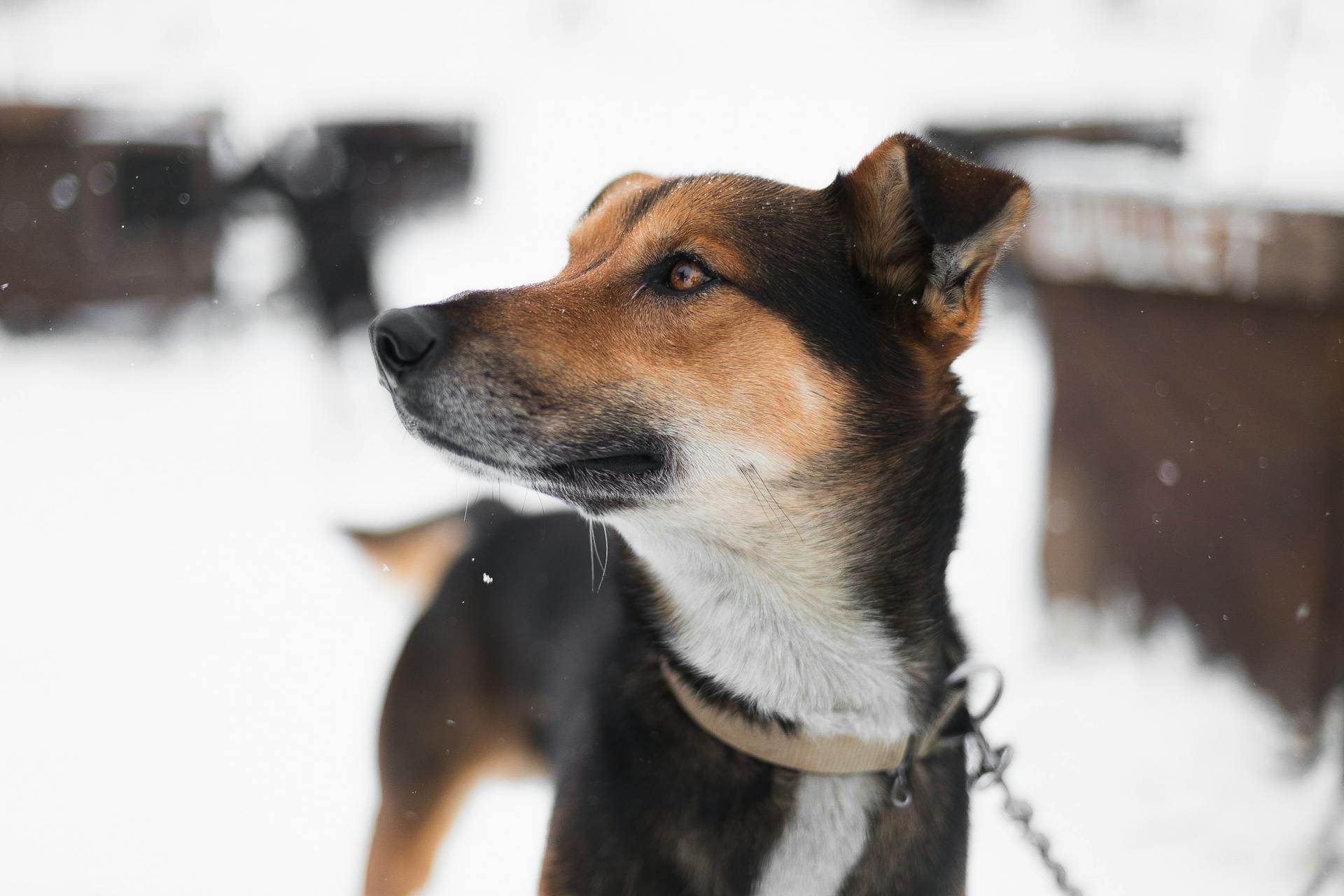
As you consider bringing a Huntaway puppy into your family, it's essential to understand the breed's health profile.
The Huntaway is known for being an incredibly hardy dog with relatively few health issues, but like all breeds, they're not immune to certain conditions.
On average, Huntaway dogs tend to live into their early teens, which is a testament to their robust health.
One genetic condition that has been well studied within the breed is Mucopolysaccharidosis type IIIA (MPS IIIA), a rare metabolic disorder that affects the production of an enzyme called heparan sulfate sulfamidase (SGSH).
This condition results in neurological abnormalities and affected dogs should never be bred from.
A very small study performed in 2011 of twelve dogs determined that the rate of Dilated Cardiomyopathy (or DCM) may be higher in the Huntaway dog than other breeds.
This disease results in an enlarged heart that does not function correctly, and can ultimately be fatal.
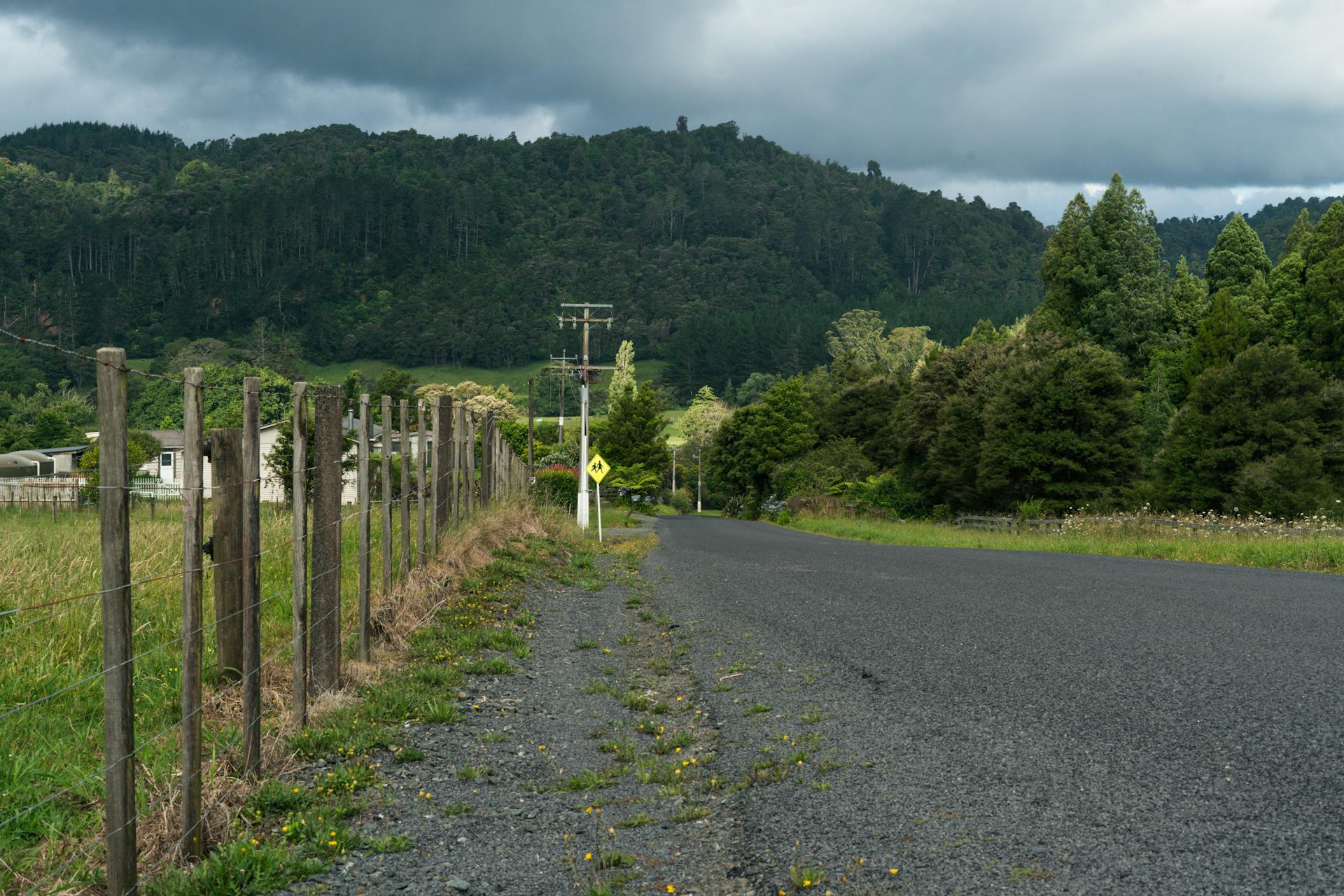
Hip dysplasia is also an issue in the breed, a condition that affects the formation of the hip joint, leading to immobility, lameness, and pain.
While medication and surgery can help manage hip dysplasia, it's a progressive condition that gets worse with age.
Here are the health conditions mentioned in this section, along with their potential impact on your Huntaway puppy's life:
- Mucopolysaccharidosis type IIIA (MPS IIIA): a rare metabolic disorder that affects the production of an enzyme called heparan sulfate sulfamidase (SGSH)
- Dilated Cardiomyopathy (DCM): a disease that results in an enlarged heart that does not function correctly
- Hip dysplasia: a condition that affects the formation of the hip joint, leading to immobility, lameness, and pain
Exercise and Care
A Huntaway needs a large amount of exercise to keep them sane. This is crucial for their physical and mental well-being.
They require suitable mental stimulation in addition to physical activity. Participating in activities like herding, agility, and obedience will lead to a satisfied dog.
An under-exercised Huntaway will inevitably become a nuisance in the home and may be destructive, hyper, and badly behaved.
Consider reading: Huntaway Lifespan
Grooming & Bathing
The Huntaway's grooming needs are relatively simple, but still require some attention. They need infrequent brushing and bathing, but regular ear checking and cleaning is a must due to their floppy ears.
Brushing their coat regularly with a firm bristle brush is a good habit to get into.
Their average shedding means they won't require frequent bathing, but ear canals should be thoroughly dried after swimming and bathing to prevent infection.
Daily teeth brushing and regular claw clipping every few months are also essential tasks that should be introduced from a young age.
Exercise and Activity Levels
Exercise and Activity Levels are crucial for your Huntaway's well-being. They need a large amount of exercise to keep them sane.
The right amount of physical activity can make all the difference in your dog's behavior. Participating in activities like herding, agility, and obedience will lead to a satisfied dog.
If your Huntaway doesn't get enough exercise, they can become a nuisance in the home, being destructive, hyper, and badly behaved.
Cross-Breeds and Variations
It's not uncommon to find a Border Collie crossed with a Huntaway, which is a unique combination that can make for an interesting and energetic pup.
While there are no recognised cross-breeds, it's essential to remember that any cross between breeds can result in unpredictable characteristics.
Expand your knowledge: Livestock Guardian Dog Breed
Testing Tips
Genetic testing is crucial for determining whether a dog is a carrier of mucopolysaccharidosis IIIA (New Zealand huntaway type).
Reliable genetic testing will determine whether a dog is a genetic carrier of the SGSH gene mutation.
Carrier dogs do not have features of the disease, but when bred with another carrier, there's a risk of having affected pups.
Each pup born to this pairing has a 25% chance of inheriting the disease and a 50% chance of inheriting one copy and being a carrier of the SGSH gene mutation.
Breeding of known carriers to each other is not recommended to eliminate the mutation from breeding lines and avoid affected pups.
Dogs that are not carriers of the mutation have no increased risk of having affected pups.
Frequently Asked Questions
How much are huntaways worth?
Huntaways can be quite expensive, with prices ranging from £500 or more for a well-bred, healthy puppy. If you're interested in bringing one home, be prepared to register with breeders and potentially wait on a waiting list.
Are huntaways aggressive to other dogs?
No, Huntaways are generally friendly and gentle by nature, making them a great match for families with other pets. They get along well with other animals, but as with any breed, proper socialization is key to ensuring a harmonious household.
Featured Images: pexels.com
